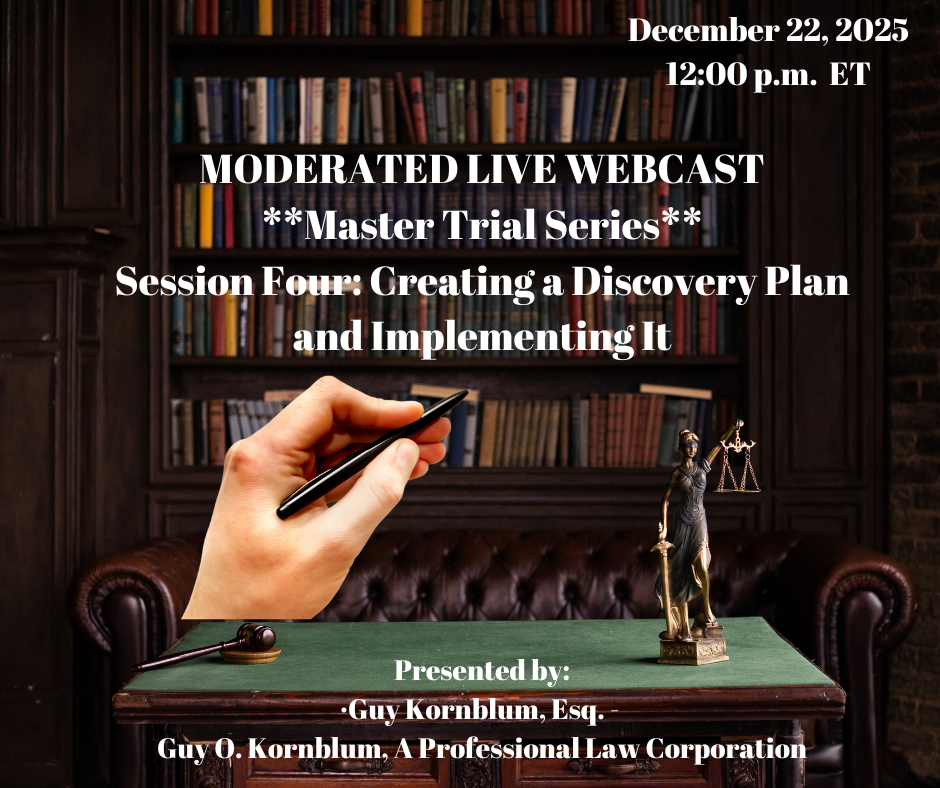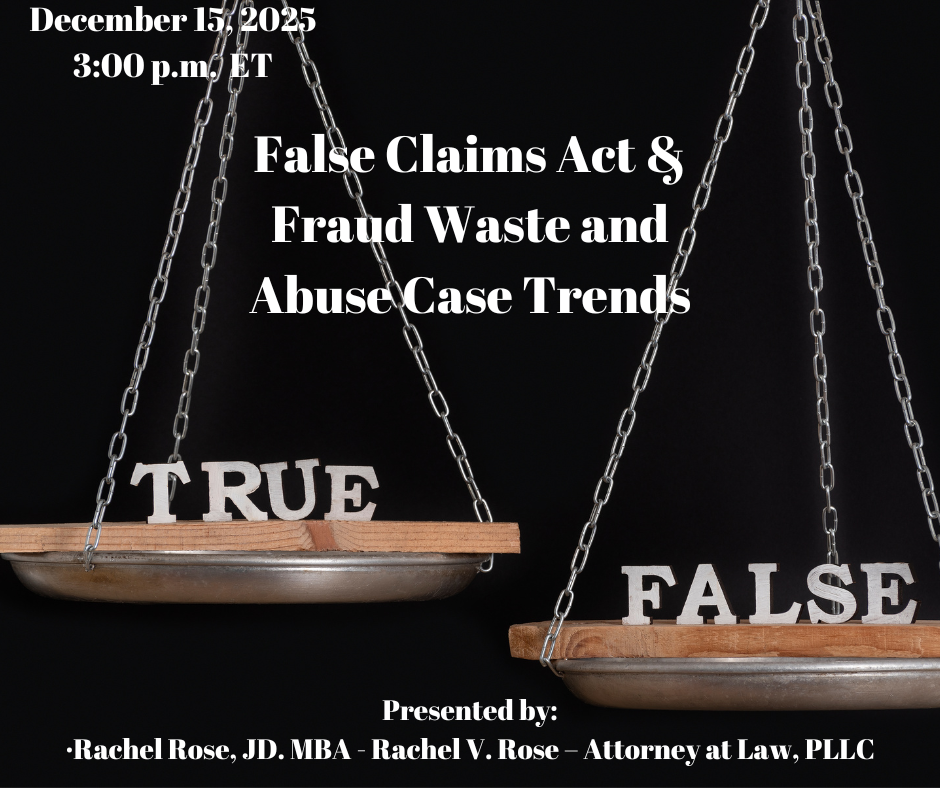
Exciting new series on “Voice, Body and Movement for Lawyers – How to connect with the jury and find Justice Through Dramatic Technique!”
Click here to find out more
Institutional trustees are often appointed to manage large trusts. Even though they may have trust departments and trust professionals dedicated to and specializing in the management of trust assets, that does not eliminate their litigation risk. In fact, it may expose them to even more litigation as they are expected to have superior knowledge of the trustee’s duties and obligations to which they are bound.
This program will provide an overview of institutional trustees' fiduciary duties, the common challenges made by beneficiaries and others, and best practices for lawyers to help corporate trustees minimize litigation risk.

Attorneys navigating today’s litigation landscape face growing challenges in identifying, pres...

MODERATED-This CLE will discuss the critical issues relating to the use of social media and legal et...

In today’s fast-evolving digital landscape, data privacy is no longer just a compliance checkb...

Dave Place, Esq., Founder of The Place Firm, will present a CLE providing practical tips to empower ...

Food, sex, exercise – all may involve a variety of commonly enjoyed experiences that are healt...

MODERATED-Session 4 of 10 - Mr. Kornblum, a highly experienced trial and litigation lawyer for over ...

Whether the Federal Government or individual State Governments, fraud enforcement, especially in hea...

For decades, the Rule of Two in government contracting required federal agencies to set aside contra...

Join Steve Herman on December 8, 2025, for "Maintaining Ethical Standards: Essential Strategies for ...

MODERATED - Session 1 of 10 - Mr. Kornblum, a highly experienced trial and litigation lawyer for ove...